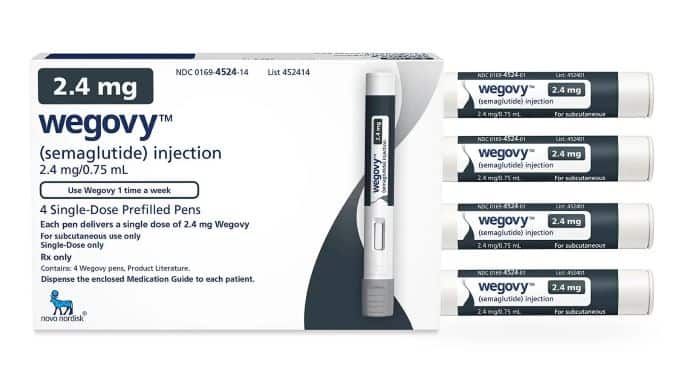Can Diabetics Take PhenQ? (Safe Enough?)
Max Health Living is a reader-supported site. Purchases made through links may earn a commission. Learn more.
The options are already very limited for diabetics, so for this article, I have searched scientific evidence that justifies why PhenQ does not fall in that no-go category for you. Additionally, I have discussed whether weight loss pills are safe in your case or whether you should introduce an FDA-approved anti-diabetic for weight loss.
In the USA, 30% to 53% of new diabetes cases are caused due to obesity every year, whereas, in 2020 alone, diabetes was the 8th leading cause of death in Americans. (source)
Considering how interlinked these two conditions are, it is highly possible that targeting obesity will ultimately influence diabetes as well and vice versa.
Key Points:
- PhenQ is generally safe for diabetics.
- PhenQ does not contain any ingredients that may complicate diabetes or related conditions.
- Find out more about PhenQ on its official website.
PhenQ has multiple ingredients like nopal, α-Lacy’s reset, and chromium picolinate that stabilize blood sugar levels and trigger insulin production, which may make it suitable for diabetics.
In this article, you will find out how weight loss pills are correlated with diabetes, how PhenQ may benefit blood sugar levels, and what anti-diabetic drugs were approved for weight loss.
So, keep reading to find out all about it.
Can A Diabetic Take Weight Loss Pills?

Yes, diabetics can take weight loss pills unless they have ingredients that spike blood sugar levels or are contraindicated with diabetic medicines.
Weight gain with anti-diabetic therapies is sometimes inevitable because the patients may start overeating due to fear of hypoglycemia or if there is excess sugar in the blood, the insulin released may start storing it as fat.
The Effect Of Anti-Diabetics And Anti-Obesity Drugs On The Diabetic’s Weight
A study that tested 9 antidiabetic treatments reported that treatments such as sulphonylureas or thiazolidinediones might induce weight gain. However, drugs like metformin cause weight loss or weight neutrality.
An early study reported that mazindol (an anorectic) is well tolerated by obese diabetics and does not interfere with their oral hypoglycemic treatments or insulin. However, due to the changes in weight caused by this pill, the patients may need to revisit their insulin requirements.
Additionally, some anti-diabetic drugs are now being repurposed as anti-obesity drugs; one example is trizepatide (brand name: Mounjaro) which is prescribed as a weight loss drug off-label.
A 72-week trial showed that participants who took 5 mg, 10 mg, and 15 mg trizepatide once a week showed a 15%, 19.5%, and 20.9% reduction in weight, respectively.
Similarly, the effect of combining anti-diabetic and anti-obesity medications was also explored to support weight maintenance in diabetics.
The results of a study that evaluated the FDA-approved weight-loss drug phentermine in type 2 diabetics reported that it induces weight loss of up to 7.9 to 8.3 pounds without affecting blood glucose levels.
Similarly, in a 12-month trial, the lipase inhibitor orlistat was prescribed to the patients in combination with sulfonylureas, metformin, and insulin. The results showed that it could reduce both weight and A1C in the subjects.
In another study, scientists found that diabetics who took the central nervous system stimulant sibutramine were able to lose 5% to 10% of their body weight which also lowered their blood sugar levels.
Apart from all these benefits, there are some major limitations to these drugs.
Limitations Of Weight Loss Inducing Drugs In Diabetics
For example, weight loss drugs like phentermine are only a short-term solution and can be taken for just a few weeks and upon the doctor’s prescription only.
Likewise, according to Mayo Clinic, trizepatide poses the risk of side effects such as pancreatitis, increased risk of thyroid cancer, digestive issues, allergic reactions, acute kidney injury, and diabetes-associated eye problems.
As sibutramine is a CNS stimulant so its most concerning side effect is that it may increase blood pressure and heart rate. In this regard, the Cardiovascular Outcomes Trial (SCOUT) of this drug revealed that it could increase morbidity due to cardiovascular disease in obese subjects.
Now, coming towards orlistat, it may affect many body systems and cause a variety of side effects which include allergy, increased risk of kidney and gall stones, loss of voice, ear pain, digestive issues, sleeplessness, pain in genitals, changes in the menstrual cycle, etc.
Therefore, it is always refreshing to have an all-natural option with minimal side effects that can be taken long-term and without the doctor’s prescription.
Gladly, manufacturers have brought such weight loss pills to the table, my top recommendation being PhenQ which may be suitable for diabetics as well.
And, before my ‘may be’ puts you in a dilemma, let me explain the underlying reasons:
Is PhenQ Safe for Diabetics?

PhenQ is completely safe for diabetics; in fact, it may be beneficial for them.
For instance, the fiber in PhenQ is the miracle ingredient that helps to lower blood sugar levels while simultaneously reducing pounds on the weight machine.
The formula of PhenQ imparts multiple benefits, such as elevating mood, burning fat, increasing satiety, speeding up metabolism, improving brain function, and preventing the accumulation of new fat cells.
So, in any case, losing weight with PhenQ may also lower your insulin needs.
Apart from the direct benefit PhenQ has for diabetes, it also ameliorates its indirect negative effects by reducing blood pressure and cholesterol levels.
So, here are some reasons why PhenQ may be a suitable weight loss pill for diabetics.
Benefits of PhenQ for Diabetics
The ingredients in PhenQ, such as nopal fiber, α-Lacys Reset, and chromium picolinate, have major benefits for diabetics.
Nonetheless, it is better that you consult your doctor before taking it.
Here is how research performed on these ingredients vouch for their anti-diabetic benefits.
1. Nopal Fiber Can Helps Reduce Glucose Peaks
PhenQ contains 20 mg of nopal per serving added to it.
Multiple studies reinforce the finding that the high fiber content of the nopal cactus has an anti-hyperglycemic effect because it slows down the rate of digestion and alters glucose absorption.
A study on 14 patients who ate nopal before high soy and high carbohydrate breakfast revealed that nopal could aid the regeneration of pancreatic cells, increase serum insulin, and reduce the glucose peaks after food intake.
2. α-Lacys Reset Can Help Increase Insulin Sensitivity
α-Lacys Reset is a patented combination of alpha-lipoic acid, cysteine, and magnesium.
Clinical trials show that this ingredient can regulate blood sugar levels.
Apart from this, studies performed on its component, alpha-lipoic acid, reveal that its intake increases insulin sensitivity and it reduces peripheral neuropathy in diabetic patients (a condition that causes numbness of limbs in them).
3. Chromium Picolinate Can Help Reduce Insulin Resistance
The second diabetes-focused ingredient in PhenQ is chromium picolinate which is present in 20 mcg per serving.
Chromium is an essential mineral that plays a vital role in regulating insulin action and its effect on macronutrient metabolism, but its levels decrease with age.
Research shows that chromium picolinate supplementation can reduce insulin resistance and reduce the incidence of type-2 diabetes and cardiovascular disease.
Side Effects of PhenQ on Diabetics
PhenQ only has mild side effects, even for diabetics which include nausea, headache, upset stomach, or irritability.
Nonetheless, weight changes may alter your insulin needs, so you need to keep that in check.
In addition to this, since you are already taking anti-diabetic medicines and on top of that, some ingredients in PhenQ also potentiate the insulin action while others suppress appetite. All these effects may cause low blood sugar and lead to symptoms like dizziness, anxiety, and other symptoms.
FDA Approved Diabetes Drug For Weight Loss
If you still want to explore some FDA-approved options, here’s my recommendation:
In 2021, the FDA approved the semaglutide (brand name: Wegovy) injection for weight loss. Initially, the semaglutide 1 mg injection (Ozempic) was approved by FDA as a diabetes type 2 treatment in 2017.

The 2.4 mg of semaglutide (Wegovy) injection is recommended once a week for chronic weight management in obese and overweight adults (age 12 or above) that are characterized by a body mass index (BMI) of 27 kg/m2 or greater who have at least one weight-related ailment such as high blood pressure, type 2 diabetes, or high cholesterol or in patients with a BMI of 30 kg/m2 or greater.
It has to be combined with some lifestyle modifications, such as a low-calorie diet and exercise, to cause satisfactory weight loss benefits.
Wegovy (semaglutide) works by mimicking the glucagon-like peptide-1 (GLP-1), which targets areas of the brain that triggers insulin release and delay gastric emptying, which makes you feel full.
The efficacy of Wegovy was studied in four 68 weeks of randomized control trials.
In a trial in which non-diabetic subjects were enrolled, a 12.4% weight loss from the initial body weight was observed in the intervention group as compared to the placebo.
In contrast, in a trial performed on diabetic subjects, Wegovy induced a 6.2% weight loss in the subjects as compared to a placebo.
Since there is a risk of side effects, its dosage is supposed to be increased gradually to 2.5 mg once weekly over 16 to 20 weeks.
Some common side effects associated with this drug include:
- Digestive problems (indigestion, belching, nausea, vomiting, flatulence, gastroenteritis, etc.)
- Headache, low blood sugar, pancreatitis, fatigue, and allergy.
Moreover, murine research indicates that it may increase the risk of thyroid cancer, so you may want to avoid it if you have a family history of it. It may also worsen diabetes-related eye and kidney problems.
FAQs
Does PhenQ Affect Kidneys?
According to a blog on PhenQ’s official website, PhenQ is safe for the kidneys as it doesn’t have any ingredients that may harm them.
Is PhenQ Fda Approved?
No, the approval of natural and herbal products and supplements doesn’t fall within the scope of FDA approval. Nonetheless, PhenQ is manufactured in FDA and GMP-registered facilities.
Important Disclaimer: The information contained on MAX HEALTH LIVING is intended for informational and educational purposes only. Any statements made on this website have not been evaluated by the FDA and any information or products discussed are not intended to diagnose, cure, treat, or prevent any disease or illness. Please consult a healthcare practitioner before making changes to your diet or taking supplements that may interfere with medications.
Who We Are

We are a team of fitness, health, and supplement experts, and content creators. Over the past 4 years, we have spent over 123,000 hours researching food supplements, meal shakes, weight loss, and healthy living. Our aim is to educate people about their effects, benefits, and how to achieve a maximum healthy lifestyle. Read more.




